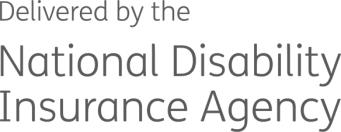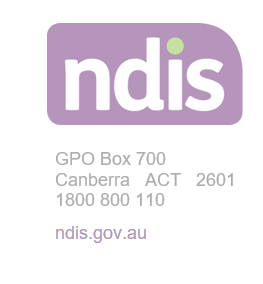
 Our reference:
Our reference: FOI 24/25-0144
1 October 2024
Bob Buckley
By email: xxxxxxxxxxxxxxxxxxxxxxxxxx@xxxxxxxxxxx.xxx.xx
Dear Bob Buckley
Freedom of Information request — Request consultation process
Thank you for your correspondence of 2 August 2024, in which you requested access under
the
Freedom of Information Act 1982 (FOI Act) to documents held by the National Disability
Insurance Agency (NDIA).
The purpose of this letter is to invite you to engage in a request consultation process on the
scope of your request in order to avoid a section 24AA practical refusal.
Scope of your request
You have requested access to the following documents:
The NDIA, as Respondent in numerous requests for decision reviews made to the
Administrative Appeals Tribunal (AAT), has claimed in its statements that some support,
therapy or early intervention types for young autistic NDIS participants (in the age range
0 to 14 years) either may cause harm or trauma, or be harmful. For example, the NDIA
made such claims in the Respondent's
* Statements of Facts, Issues and Contentions at paragraph 52 in DRXK v N DIA
(2023/0077) wrote "the Respondent is concerned that high level intervention may be
harmful for this Applicant" in relation to the Applicant's request for funding for EIBI/ABA.
* Closing Submissions in QLYQ v NDIA (2021/9898).
The NDIS has shown reluctance at least to fund some support, therapy, and/or early
intervention types that clinicians and experts advice are "evidence-based" and
"reasonable and necessary". Some NDIA staff claim there is risk of trauma or harm
associated with those supports.
Please provide all information:
1. in statements to the AAT, in either an ADR or hearing process, that a support, therapy,
or early intervention type requested by the Applicant may either cause harm or trauma,
or should be considered harmful for an autistic child or children, and
2. held by the NDIA that relates to whether or not any support, therapy, or early
intervention type may either cause harm or trauma, or should be considered harmful for
an autistic child or children generally,
Note: in relation to 1. above, a list of the claims that the NDIA made to the Tribunal or in
1
its ADR process is required with a case identifier. The request is not for information that
identifies any Applicants.”
Internal consultation A preliminary search of the Agency’s LEX database (containing all AAT matters) has been
conducted by the NDIA’s Administrative Appeals Branch (AAB) using the key word “autism”.
This search has returned more than 6,000 hits. This is in a context where AAB have been
storing records on LEX for a period of less than three years. I have been advised by AAB that,
in order to respond to your request in its current form, 10 years of data and documentation
would need to be retrieved and reviewed. This would likely take several Agency officers
several months to action and would likely represent a substantial and unreasonable diversion
of AAB’s resources.
Additionally, in respect of item 2 of your request, AAB have identified that locating
documentation ‘
held by the NDIA’ would necessitate searches across multiple agency
business areas, including but not limited to Internal reviews, Planning, Service Delivery and
Technical Advisory Branch. It is reasonable to expect that a very large volume of responsive
documentation would be located using the search terms of “autism” AND ‘child’. Each of these
documents would then need to be scrutinised to enable decisions as to whether they were in
scope of your request. Again, my view is that the work involved in carrying out searches across
multiple business areas and reviewing each document would represent a substantial and
unreasonable diversion of the Agency’s resources.
Practical refusal
I am authorised to make decisions under section 23(1) of the FOI Act.
In view of the above, I am writing to advise that the work involved in processing your request
in its current form would substantially and unreasonably divert the resources of the NDIA
from its other operations. This is called a “practical refusal reason”’ under section 24AA of
the FOI Act.
Practical refusal A practical refusal reason exists if either (or both) of the following applies:
(a) the work involved in the processing of the request would substantially and
unreasonably divert the resources of the Agency from its other operations; and/or
(b) the request does not satisfy the requirement in section 15(2)(b) of the FOI Act, which
requires an FOI applicant to provide such information concerning the document/s
they are seeking access to, to enable the Agency to be able to identify it or them
In reaching this view, I have taken account of:
• the internal advice from AAB, who are the subject matter experts within the NDIA
• the lack of a specified date range in your request
the breadth of your request.
Request consultation process
In circumstances where an Agency is considering a practical refusal, it is required to
undertake a request consultation process under section 24AB of the FOI Act. The purpose of
this letter is to initiate that process. You now have 14 days to do one of the following:
• withdraw your request;
• make a revised request; or
2

• indicate that you do not wish to revise the request (in which case your original scope
remains).
If you do not do one of the three things listed above during the consultation period, your
request will be processed on the basis of the current scope, and it is likely to be refused on
the basis that processing it would represent a substantial and unreasonable diversion of the
Agency’s resources.
Please note that the time taken to consult with you regarding the scope of your request is not
taken into account for the purposes of calculating the timeframe for processing your request.
If you wish to discuss this process, please contact me by email a
t xxx@xxxx.xxx.xx. Alternative access:
To assist with the management of your application, I have consulted with AAB for
suggestions on how to make your request more manageable.
In response, AAB have suggested that this request may be better managed outside the FOI
process, via a new, general request addressed to th
e: xxxxxxxxxxxxx@xxxx.xxx.xx
inbox with a narrowed time frame from
3 August 2019 to 2 August 2024, with specific
search terms such as:
• “autism” AND “therapy” AND “child” AND “harm”
• “autism” AND “therapy” AND “child” AND “trauma”
• “autism” AND “support” AND “child” AND “harm”
• “autism” AND “support” AND “child” AND “trauma”
• “autism” AND “early intervention” AND “child” AND “harm”
• “autism” AND “early intervention” AND “child” AND “trauma”.
• “Applied Behaviour Analysis” OR “ABA” AND “child”.
This would allow the NDIA to conduct a search of relevant decisions published by the
Administrative Appeals Tribunal, noting the Agency takes the view that this will not be by
way of legal advice on the issues you have raised.
If this alternative method of accessing the information you seek appeals to you; or you wish
to make a revised request, then please let us know by
15 October 2024. If I do not hear from you by this date, I will proceed to process your request in its current
form.
Please do not hesitate to contact me if you have any questions.
Yours sincerely
Wendy (WNN633)
Senior Freedom of Information Officer
Complaints Management & FOI Branch
General Counsel Division
3


